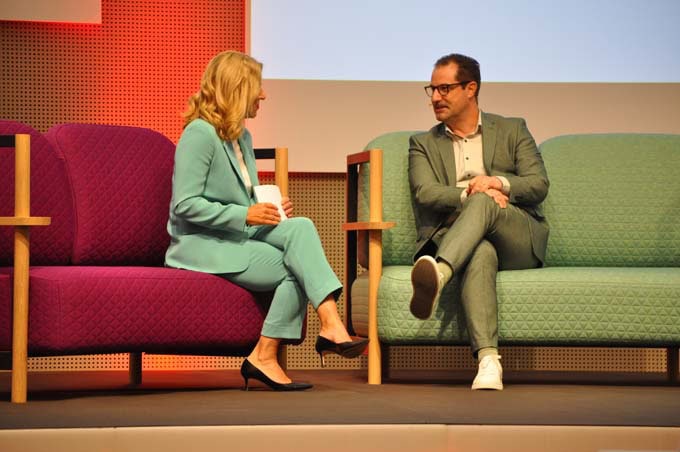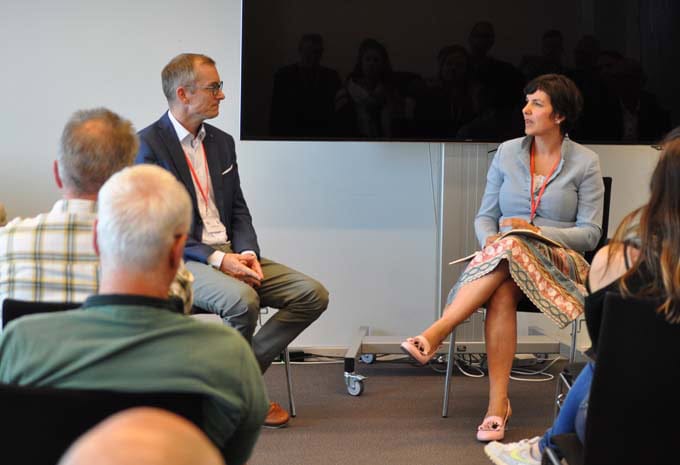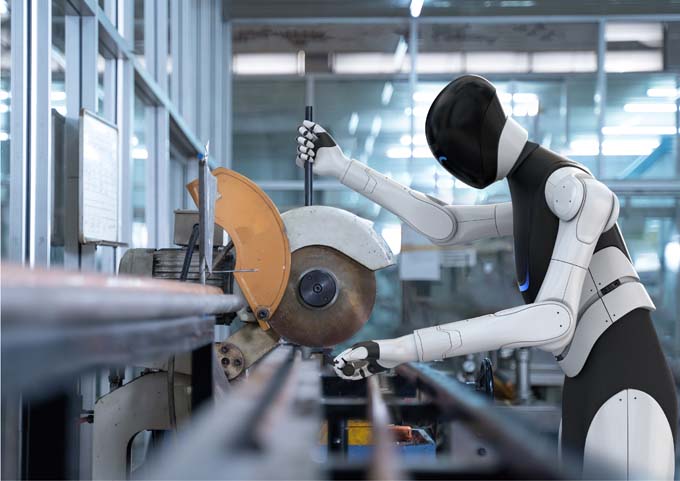A day of Swiss quality with vision
The traditional Swiss Quality Day took place in Bern on May 13, 2025. The motto was "Taking off with vision". The event, which was once again well attended, also marked the start of the SAQ's 60th anniversary.

This year's Swiss Quality Day did not take place in the Kursaal in Bern as usual, but in the BERNEXPO congress center. The event, organized by the SAQ Swiss Association for Quality, once again offered a diverse range of topics under the motto "Taking off with vision". The event marked the start of the SAQ's 60th anniversary year. What began six decades ago with the work of a few steadfast quality specialists has developed into a strong organization throughout Switzerland that has since been able to set new standards for many industries.
Foresight in corporate management and security
The conference motto could almost be taken literally during the presentation by Leila Schwab, Chairwoman of Village Élargi. This is a holding company that emerged from the diversification of the timber construction company Schwab-System. It now also includes companies in the fields of 3D scanning, consulting and even game development. Leila Schwab outlined the opportunities offered by such an "expanded world": Cross-divisional projects, better consideration of employees' skills (architects can also be puzzle developers or marketing managers) and also flexible working time models. For example, the 4-day week has been established or employees have three "feel-good hours" per week. The results: Greater satisfaction among staff, more time for the family and, last but not least, an effective means of being an attractive employer.
In his subsequent presentation, Dr.-ing. Bruno G. Rüttimann from inspire AG showed that Lean Six Sigma is anything but an "outdated system". He pointed out that many companies do not fully understand the system established by Toyota. Much remains piecemeal; it is not enough to focus solely on avoiding "muda" (Japanese for "waste"). Rather, lean must be understood as kaizen-based just-in-time production. Rüttimann also took a hard line on the concepts of smart factory, automation and digitalization. "If you automate an underperforming system, you simply end up with an automated underperforming system". Against the backdrop of rapid technological development, he concluded his presentation with the call: "Before we learn to fly, we have to learn to walk. Because we are still crawling."
A far-sighted approach is also needed when it comes to security. Presenter Andrea Vetsch spoke about this with Martin von Muralt, Delegate of the Confederation and Cantons at the Swiss Security Association (SVS). He sees three major challenges for security in the present and future: firstly, the combination of climate change with geopolitical instability and migration; secondly, the vulnerability of critical infrastructures; and thirdly, social polarization as a result of information bubbles. All of this alone makes crisis management difficult. Switzerland's federal structure adds to this. "Authorities must be close to citizens and transparent. That creates trust. Because without trust, no crisis can be managed," says Martin von Muralt. The topic of cyber security was also addressed. Ensuring cyber security is not a question of technology, but a management task, said von Muralt.
Of courage, sustainability and AI mediocrity
Marc Hauser, entrepreneur and skydiver, gave a rousing talk about his adventure of flying with the Jetstream. He talked about his extensive preparations for this jump, which was ultimately successful from a balloon at an altitude of 7,600 meters. The fact that the hot-air balloon's burner failed at times and the chin strap of his helmet would not close made the success of the undertaking all the more spectacular. Marc Hauser gave the audience the tip to set themselves higher goals, because: "Realistic goals are own goals".

Another talk focused on the re-manufacturing and upcycling of furniture: Davide Mastrodomenico from Girsberger AG reported on various projects on how furniture can be refurbished so that it can be used again "as new" and thus given a second life. The fact that the market for this is very large is shown by the fact that chairs worth 150 million Swiss francs are sold in Switzerland every year. If their quality is right, they can also be renewed. Mastrodomenico calculated that this could save around 50 percent of the cost of buying a new chair. The real supreme discipline, however, is upcycling. Stylish office furniture is created from disused waste garbage cans, even equipped with power sockets. "Upcycling could become the industry of the future," said Davide Mastrodomenico, pointing out that many companies have a lot of office furniture sitting around that is no longer being used.
Patrick Karpiczenko, comedian, film producer and lecturer in artificial intelligence, concluded the event with his humorous examples of what is and is not possible with AI today. He showed how to deal with AI-generated mediocrity and pointed out that humans still have to decide when "good enough" really is enough.
Diverse world of quality

Other items on the program included elevator pitches from the exhibiting companies and four workshops, where new and tried-and-tested approaches to quality management were discussed and the topic of "upcycling" was explored in greater depth using a current business case. The analogy between referees and quality managers was also fascinating: both have to enforce rules and sometimes show the red card, i.e. take unpopular measures. Last but not least, AI was another focal point. Thanks to the use of AI in management systems, efficiency gains of up to 50 percent can be achieved, as was demonstrated using examples.
The next Swiss Quality Day will take place on April 21, 2026 - at the end of the SAQ's 60th anniversary.









